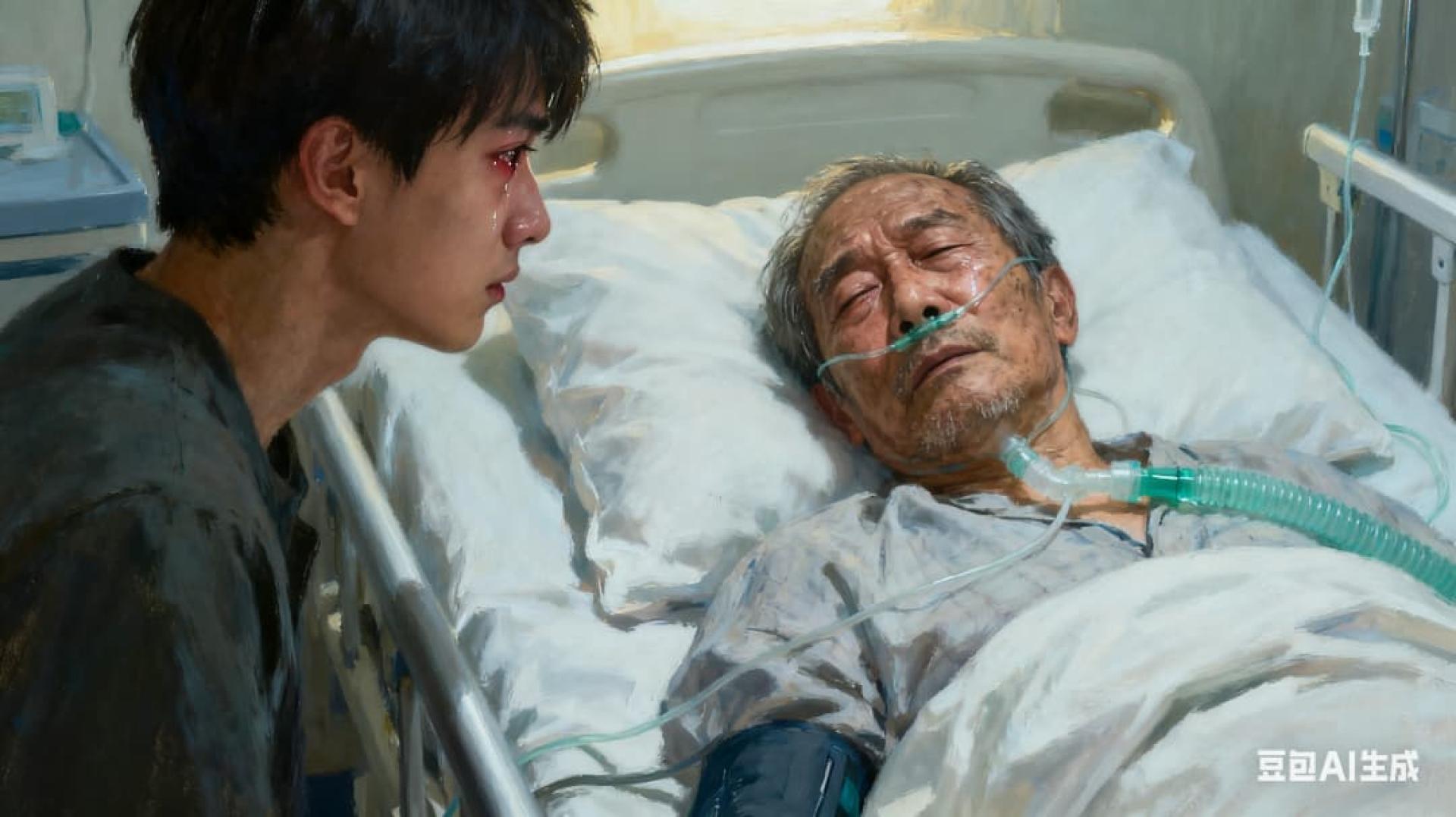A 59-year-old man in Taiwan was diagnosed with ALS (Amyotrophic Lateral Sclerosis), gradually becoming paralyzed and relying on a ventilator to survive. Long-term pain and dependence left him physically and mentally exhausted, and unwilling to burden his family further, he finally spelled out the words “remove tube” by blinking, expressing his wish to have the life-support tube removed and pass away. Understanding his father’s decision, the son tearfully granted his last wish, leaving behind a heart-wrenching scene.
Chen Chih-Chin, an intensive care doctor at Chi Mei Medical Center in Taiwan, recently shared this true story on Facebook. The man, once a spirited businessman, became helpless due to illness. When he was admitted to the ICU, he had both a breathing tube and a nasogastric tube in place, able to move only his eyes. His only companion was his son, who was just in his twenties.
The father and son communicated using a phonetic board: the son would recite the sounds, and the father would blink to respond, spelling out sentences slowly. One day, when the son reached the sound for “b,” the father blinked hard, ultimately spelling out “remove,” expressing his resolve to end life-sustaining treatment.
Eyes brimming with tears upon hearing this, the son still held his father's hand tightly and softly replied, “Dad, I understand.” A few days later, he consented to removing the tube; several hours after that, his father's heart stopped. At that moment, the ward was filled not with yelling, but with silence and tears.
“This wasn’t my decision, but his last lesson for me—how to say goodbye with dignity,” the son said afterward.
Dr. Chen lamented that he has witnessed countless miracles in the ICU, but this time, he witnessed a different kind of miracle—“love and courage.” He said, “A good end doesn't require wealth, but calls for love and courage. Love is not being able to bear seeing your father suffer further; courage is fulfilling his last wish, even amid outside criticism.”
This story resonated throughout Taiwanese society, reminding people that at the end of life, perhaps love and dignity most peacefully converge.
